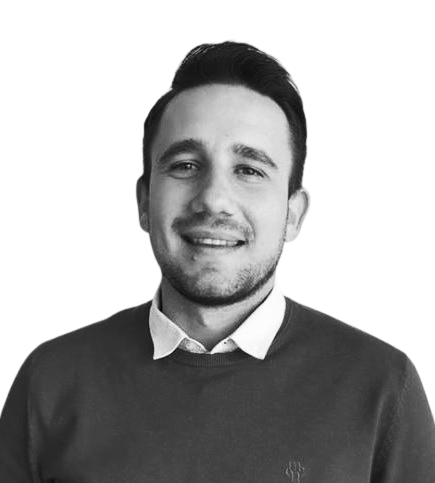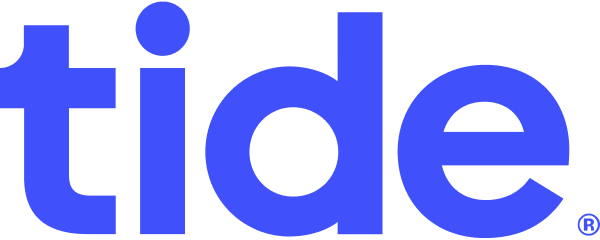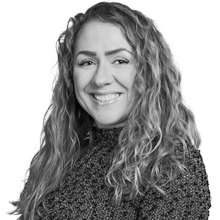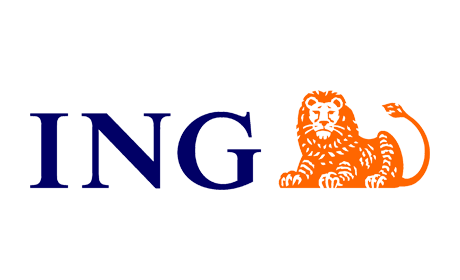
Your Stories
Professional Certifications shape careers. In this ongoing collection of interviews we’ll share the impact that getting certified has had on some of our members, in their own words.
Jonathan Dupont
FIU Investigator, Western Union
Jonathan’s Story – ACAMS’ Rising AFC Professional of the Year 2022
Jonathan Dupont talks to ACAMS about his recent award win and reflects on his career to date.
October 10, 2022
What drew you to go into this field of work?
I have always wanted to have a meaningful career in which I can make a positive impact on society; this field of work has been the right choice. I started my career in anti-money laundering compliance as a Know Your Customer Associate and rapidly became an Investigator within an advanced investigative team. The central motivating factor for most criminal actors is often money, and my role as an investigator enables me to make a greater difference and achieve a more far-reaching impact by conducting various types of higher-risk investigations.
What motivates you to continue the fight against financial crime?
I find true fulfilment in contributing to the global security of society by combatting crimes and protecting people, especially the most vulnerable. The most satisfying aspect of my work is to dismantle trafficking networks by depriving criminals of the proceeds of their crime. Every day is different and every case is unique, which makes this work quite exciting too.
The anti-financial crime industry is also constantly evolving, and this is all the more true with the emergence of new technologies like cryptocurrency. I like learning about these new and challenging matters, to meet the new reality of financial crime in today – and especially tomorrow’s – society.
Besides winning this great award, what other accomplishment are you most proud of?
One of my greatest accomplishments is the publication of one of the first major studies on the phenomenon of live online child sexual abuse, which was featured during an international seminar organized by the French Central Office for the Fight against Serious and Violent Crimes (OCRVP).
I am also proud to have co-authored a Social Impact Certificate Course for ACAMS about Preventing Child Exploitation with Financial Intelligence, which is available for free to all anti-financial crime professionals globally seeking to play an active part in the fight against the sexual exploitation of children.
Are there any words of wisdom or encouragement that you want to give other AFC professionals?
Strive for excellence and follow the money! A careful financial investigation that properly follows the trail of money and other assets can reveal the complex structure of major criminal organizations. Keep in mind that criminal investigations can be opened on the basis of information transmitted through SARs/STRs, which are the cornerstone of many financial investigations. These can result in legal action, in the seizure and confiscation of the proceeds from criminal conduct, and ultimately in the conviction of criminals – and most importantly, the rescue of victims.
Ivan Atanasov, Senior KYC Analyst, Tide

Filip Nikolov, Senior Quality Assurance Analyst in KYC, Tide

Ivan’s and Filip's CAFCA Stories
Ivan and Filip had a chat with our Anti-Financial Crime Director, Shilpa Arora. Here are their thoughts...
April 22, 2022
Can you tell us about your role at Tide?
Ivan: I joined as a KYC Analyst as part of the first line of defense (1LOD) onboarding team at Tide in early 2021. I’m now the Senior KYC Analyst. My role is to identify and mitigate financial crime risk during onboarding. I've worked with different jurisdictions, but now I deal with onboarding entities in the United Kingdom jurisdiction. I’m based in Sofia, Bulgaria. Prior to joining Tide, I worked in a high street bank.
Filip: I’ve been with Tide for two years. Previously I worked for BNP Paribas, also with a focus on KYC. Within a FinTech, the culture is dynamic and challenging. As a QA Analyst, I speak to KYC Analysts, their team leaders, and other departments. Communication and feedback are the most essential qualities in my role.
How has becoming CAFCA certified helped you in your day-to-day work?
Ivan: I’ve become more confident in my day-to-day work and my daily responsibilities. CAFCA helped me understand customer risk, channel risk, and jurisdiction risk. I also gained an overall understanding of risk assessment –inherent risks, controls, and residual risk. It gave me confidence in my judgement if we receive potentially false information regarding a customer’s identity or nature of their business. It’s made me trust my sixth sense, enabling me to become a better investigator.
Filip: Given I work as part of 1LOD, the explanation of the legal terms and theoretical aspects, and other controls such as ongoing due diligence and transaction monitoring, helped me get the bigger picture of how KYC and onboarding fits in with the rest of the controls. It helped me join the dots across controls in the organization and realize we’re one part of a big organism. I also think CAFCA will be very helpful for my future career.
Do you think other FinTech AML teams would benefit from becoming CAFCA certified?
Filip: Definitely. We were a part of the first cohort from Tide to earn CAFCA, as part of a group comprised of KYC Analysts from our 1LOD. Because of our positive feedback about the course, Tide is rolling it out to the second line of defense (2LOD) team of financial crime analysts and ongoing monitoring professionals.
What advice do you have for someone thinking about taking CAFCA?
Ivan: Don’t have any hesitation. I’d recommend watching the video course and revising straight after using the study guide. Use your practical experience alongside what you’ve learned from the course to pass the exam. 2LOD teams will also find it very relevant.
Filip: Download the whole PDF study guide and read it like a book –also follow the video course. I did it simultaneously on my two screens. I found the flash cards to be very helpful too. I would say that it’s much easier to complete CAFCA it if you have practical knowledge. FinTech teams and businesses will benefit from it; we use it every day in our work and see it as an advantage.


Aimee’s CKYCA Story
Aimee Sothcott, ING Client Control Portfolio Manager talks to Shilpa Arora – ACAMS AML Director (EMEA)
January 26, 2021
Hi Aimee– can you tell us about your role at ING?
I work for ING in London, for the Client Control team, managing UK diversified Corporates. So, I manage KYC for that portfolio – from periodic reviews to the onboarding of new clients.
Congratulations on becoming certified as a KYC Associate. How has that helped you in your role?
First of all, I think it’s great that ING partnered with ACAMS to introduce their internationally recognised and certified digital training. After completing the training, I feel even more empowered in the fight against financial economic crime. It helps my colleagues and I to further enhance our KYC knowledge, skills and expertise in an innovative and engaging manner. This helps to ensure that our customers can continue banking safely and securely.
I've worked in KYC for more than five years, before joining client control. I was previously a KYC analyst, with the majority of my knowledge coming from on-the-job training. So, this certification recognises all that experience.
In the portfolio, I look after a lot of cross-border interaction, so I deal with teams across all ING regions. Having this accreditation gives me more confidence in performing my role.
Did you have any ‘ah-ha’ moments that really stood out during the program, or key topics that you found helpful?
When you’re a KYC analyst, you can fall into the habit of requiring items just because the policy says so. But, when you complete a course like this, you think about the big picture and you’re reminded of what’s underpinning the policy, and how important it really is.
Which is so beneficial – when you're speaking to a client or to account managers in the front office, you can comfortably explain why you’re asking for pieces of information, rather than just saying ‘the policy requires it’.
That builds stronger relationships with front office. If you can explain the context as well as the requirement, that really reinforces that we’re on the same team, with the same goals.
How often do you practise your new CKYCA knowledge?
In my case, every day. Every day I’m working on CDD reviews for existing clients and clients that are being on-boarded. A lot of our clients are big PLCs and they’re listed, with subsidiaries all over Europe…so that obviously involves different booking offices in different regions.
At ING our policy is dictated by Dutch law, but I need to consider and align with all local laws involved. This helps build my experience and knowledge base, and it’s both interesting and challenging working with so many compliance teams in different countries.
So, who do you think would benefit from CKYCA?
I think front office would definitely benefit. If front office are exposed to the bigger picture of KYC, they’d have a greater understanding why we need this information, to ensure the client relationship is as we believe it to be.
I’m sure there’d be some ‘ah-ha’ moments for them too, as they fully understand what’s underpinning KYC.
Finally, what advice do you have for someone thinking about getting certified? Any study tips?
I took time to really read the material. But more importantly, I was also thinking how I could put it all to work – applying it to my day-to-day role, thinking about my client base and where the information would be immediately applicable. That approach was so beneficial for me.
I used the ACAMS app quite a lot, and the flashcards are really useful. I also played the game with the time limit to practice what the exam might be like. It’s amazing how quickly 90 minutes passes in the real thing!
Thank you Aimee. We wish you great success in your AFC career!


